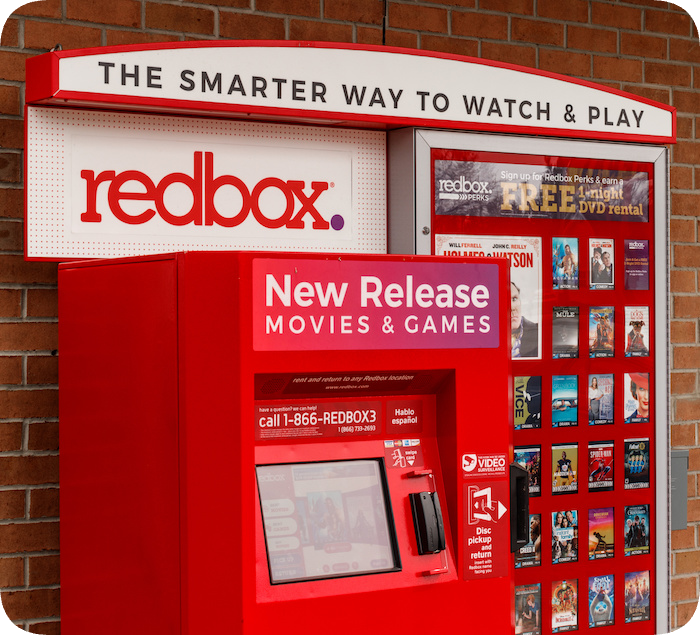Redbox launched its video rental kiosk business back in the early 2000s when the industry was still dominated by chains like Blockbuster. While brick-and-mortar stores charged $2 to $5 per night, customers could rent movies at Redbox for just $1 since the kiosks were much cheaper to maintain than physical locations. Customers also liked that Redbox operated 24/7, functioning more like a vending machine than a retailer. By 2007, the company had more U.S. locations than Blockbuster. Redbox peaked in 2013 with annual revenue of $1.97 billion and a network of more than 43,000 kiosks across the U.S. and Canada.
But the company struggled as the years went on and many consumers switched to streaming platforms like Netflix. Sales at Redbox eventually dropped so low that the company stopped paying commissions to the grocery chains, pharmacies, convenience stores, and other retailers that hosted their kiosks. Those businesses then asked Redbox to either pay up or remove the machines — which weigh almost 900 pounds and are often anchored to a concrete base — from their storefronts, but Redbox never did. To make matters worse for retailers, this year Redbox filed for bankruptcy and liquidation, with no money or staff remaining to dispose of the kiosks. Now it’s unclear what will happen to the thousands of abandoned Redboxes — or the hundreds of DVDs left inside each one.
Jacob Helton, a movie enthusiast in North Carolina, managed to get a Redbox machine of his own, which he keeps in his garage. When a contractor came to his local drug store to haul the defunct kiosk to the dump, Helton saved the machine and took it home. Once he got it open, he gave away the DVDs and games inside and replaced them with his own collection. Helton said he’s keeping the kiosk as an artifact of American media history because “its collapse marks the end of the video rental era.”
Questions:
- What made Redbox so popular with customers in the early 2000s, and why did it start to decline soon after?
- Do you think retailers that are stuck with Redbox machines could find some other purposes for the defunct kiosks? Can you come up with any ideas?

